In their research, Richard Florida and his co-authors look for answers to the questions of which cities are the most concentrated venture capital investments, which cities have grown the most these investments recently, and more generally, what characterizes the startup map of the world today?
Venture capital investments can be traced back to Boston from the mid 1940’s. However, they became dominant in Silicon Valley among young high-tech firms between the 1950’s and 1970’s. Venture capital was concentrated almost exclusively in the United States for decades, and then slowly spread worldwide from the mid 1990’s, and especially in the 2000’s.
The 20 largest startup urban ecosystems in 2015
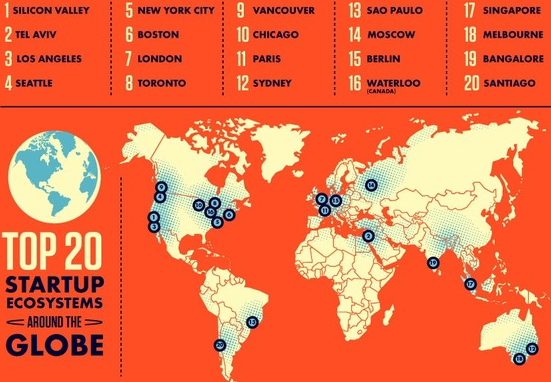 Source: Geofusion- Mapping of the 21st Century
Source: Geofusion- Mapping of the 21st Century
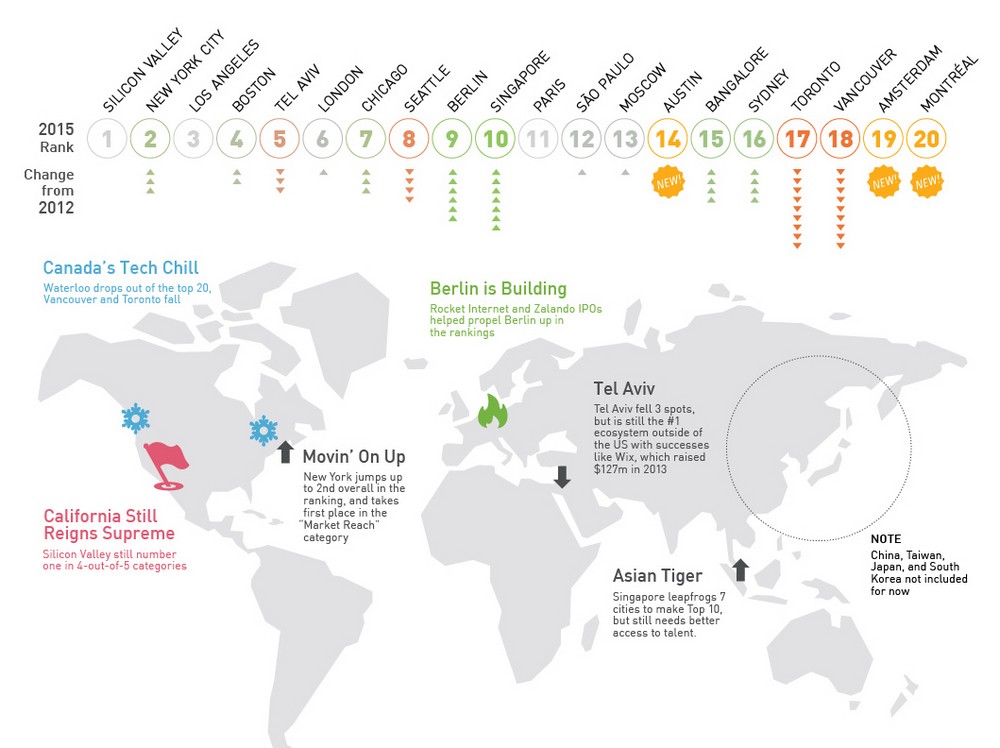
Source: Visualcapitalist
In the mid 2010’s, startups and venture capital investments in Europe, Asia and other parts of the world rose dramatically, and the phenomenon became global. In the research, the authors examined start-ups and the movement of venture capital in more than 300 major cities around the world between 2005 and 2017.
Global expansion of startup activity
Since 2009, the number of startups and the volume of venture capital investments have increased tremendously. As more and more countries try to recover from the global financial and economic crisis, a new era of technological innovation has begun. Global venture capital investments amounted to “only” $ 52 billion in 2010 and $ 171 billion in 2017, an increase of more than 200 percent, and the number of transactions nearly doubled over the same period, rising from 8 600 to 14 800.
Territorial locations of global cloud services
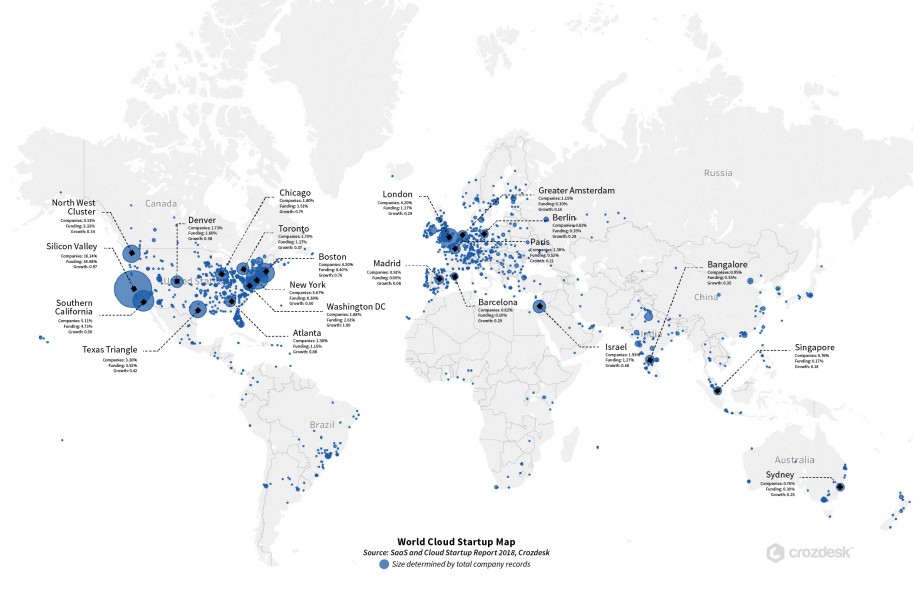
Forrás: Crozdesk
New global players have emerged and the role of the USA have relatively declined
Although the U.S. still has the strongest startup and venture capital activity, their global share has declined significantly. It was still 95% in the 1990’s, only around 66% in 2012, and just over 50% today. In addition, among several other countries, China has emerged as a major challenge, which alone has attracted nearly a quarter of global venture capital investment in the recent years.
India and the UK have a 9-9% share. Germany, France, Israel, Singapore, Sweden and Japan together share another 9% slice of the global venture capital market.
Locations (Distribution?) of the largest venture capital investments
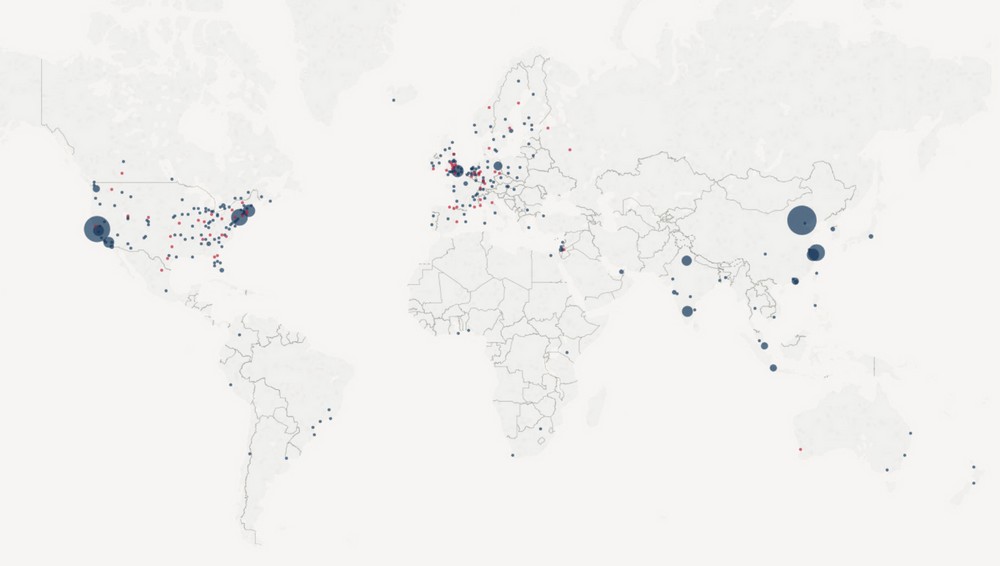
Source: Richard Florida – Global Startup Cities
New global startup cities
Global capital investment is most prevalent in cities largely outside the USA. The San Francisco-San Jose metropolitan area is still the most important epicenter of startup activity, with about a fifth of global venture capital investment concentrated here, while an increasing number of global cities are involved in the process, including London, Berlin, Paris and Stockholm in Europe. , Beijing, Shanghai, Bangalore, Delhi, Mumbai and Singapore in Asia, and Tel Aviv in the Middle East.
Tel Aviv: "Welcome to the technological Babylonian Era"
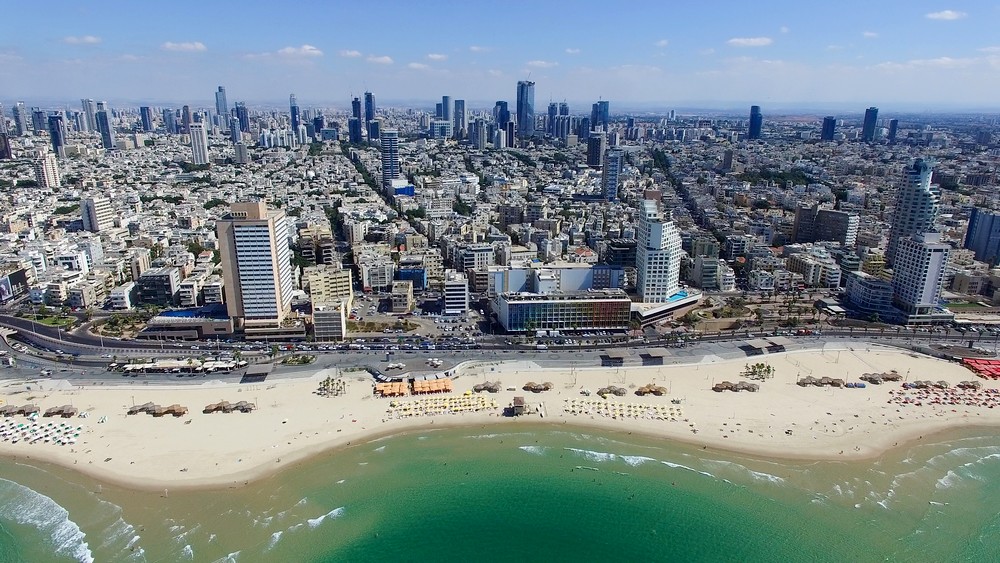
Source: Shutterstock
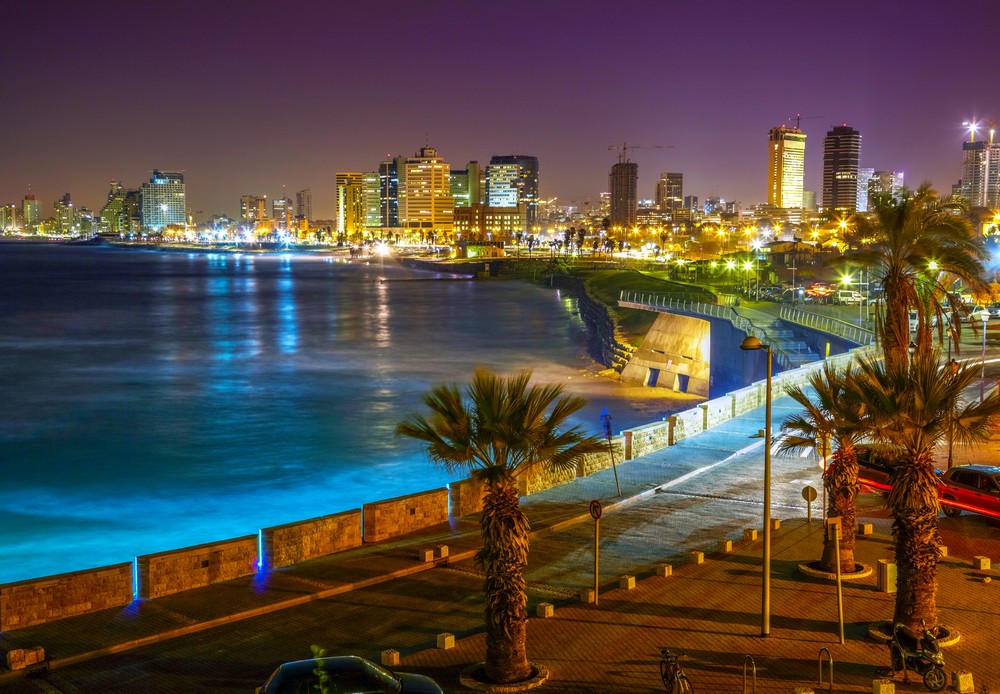
Source: Shutterstock
Dubai
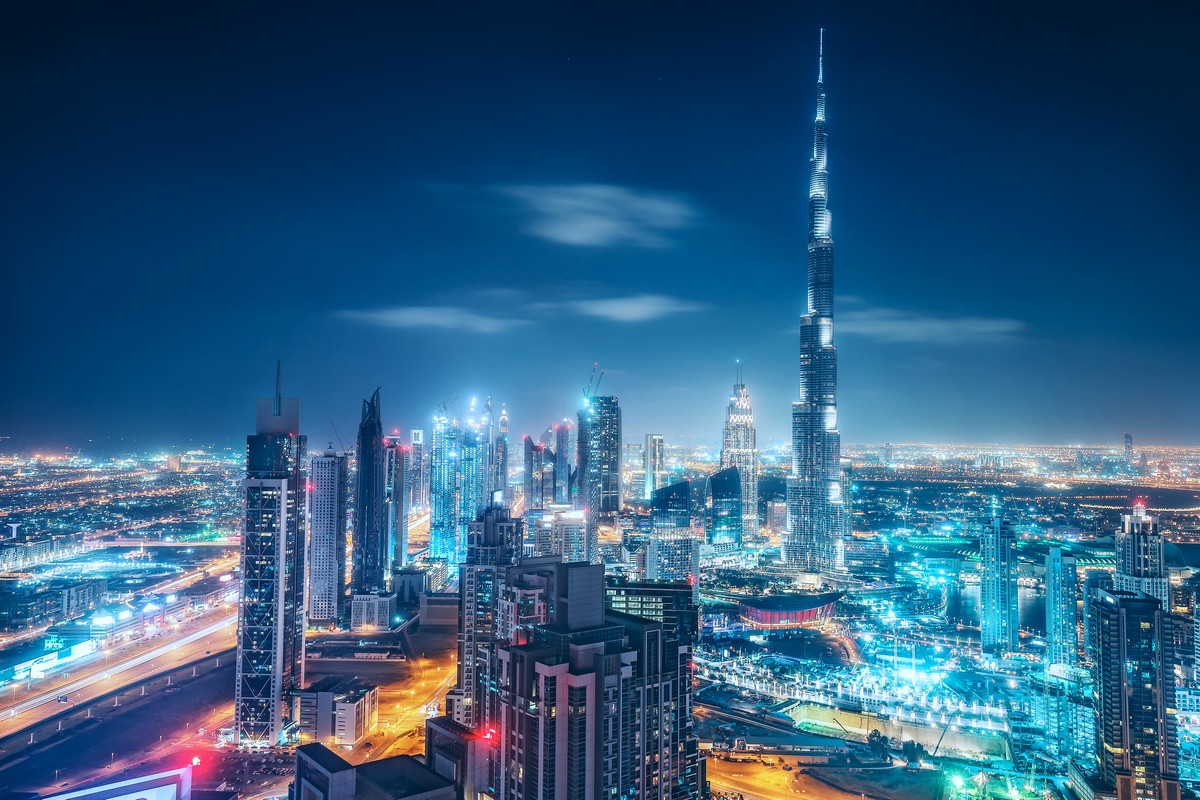 Source: Shutterstock
Source: Shutterstock
Hyderabad
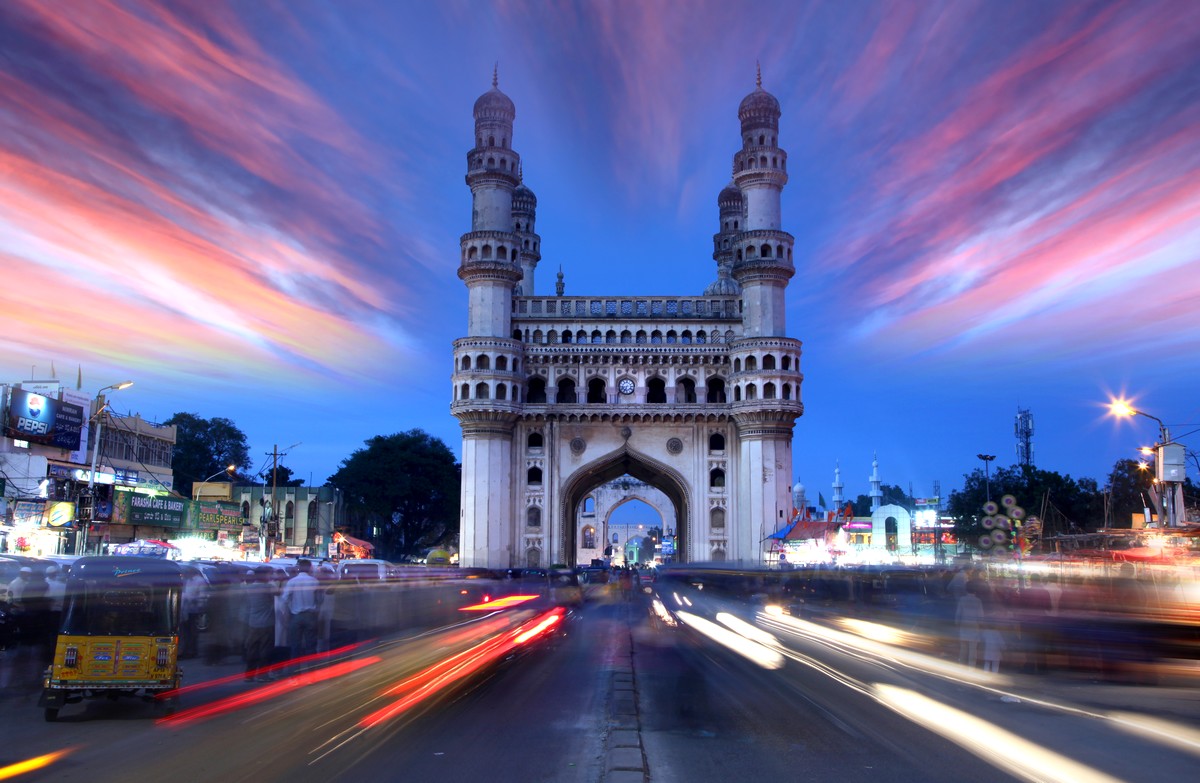 Source: Shutterstock
Source: Shutterstock
Startup globalization is a concentrated phenomenon
The globalization of startup cities and venture capital shows a highly unequal geographic picture. Three-quarters of all venture capital investments are concentrated in just 24 cities, despite the fact that only 4% of the world’s population lives in them. Also, the top six of these cities attract more than half of global venture capital (their population is 1% of the world’s population). Investment growth over the past five years is even more concentrated: half of the increase is concentrated in just four cities, and three-quarters of the increase is concentrated in the top 13 cities
Global map of startup nodes
A kutatás a globális startup-csomópontok két típusát különíti el: a már régóta fennálló, és a felemelkedő csomópontokat. A kettő összesen hét különböző alkategóriára osztható.
The Rise of Global Startup Cities
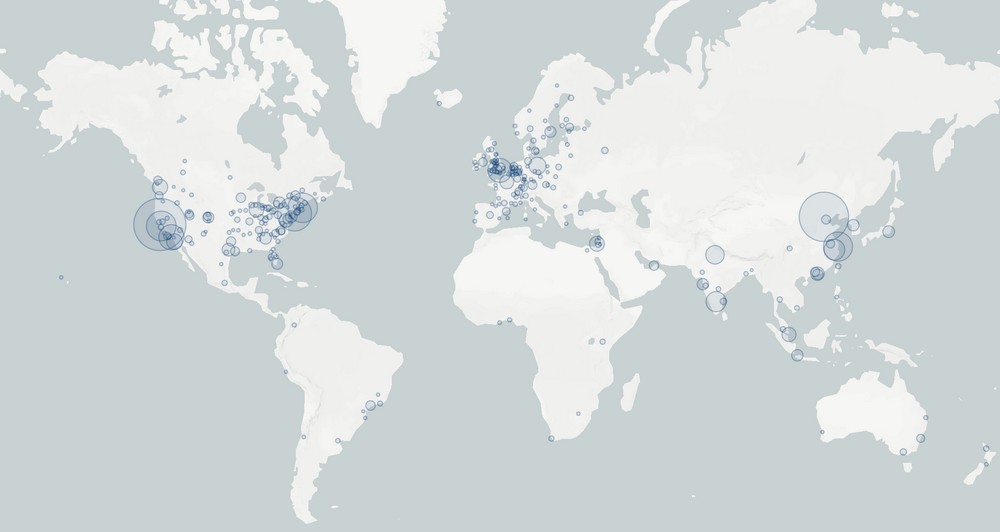
Source: Richard Florida – Global Startup Cities
Long-standing global startup nodes
62 cities worldwide fall into this category. They are responsible for the lion’s share of startup activities, nearly three-quarters of venture capital transactions are made in these cities and home to nearly 90% of venture capital investments.
Four subcategories can be distinguished within this type:
⦁ The “superstar” global startup nodes include six cities; the San Francisco metropolitan area is indisputably the most important, followed by New York and London and the other three cities are Beijing, Los Angeles and Boston. More than half of global venture capital investments are concentrated in these six cities.
⦁ The “elite” global startup hubs include 13 cities, which are; Austin, Chicago, San Diego and Seattle from the USA, Bangalore, Delhi and Mumbai from India, Berlin, Paris and Stockholm from Europe, Shanghai and Singapore from Asia, and Tel Aviv from Israel.
⦁ The “advanced” global startup node group includes 20 cities, nine from North America and seven from Asia, Amsterdam, Barcelona, Dublin and Helsinki from Europe.
⦁ The “recognized” (acknowledged?) global startup nodes group includes 23 cities, with 11 cities in North America, six European cities (Cambridge, Copenhagen, Milan, Munich, Oxford and Zurich), four Asian cities, one in the Middle East and one in South America.l.
Ascending startup nodes
Thirty more cities belong to this group, more than 40% of them from the US, a quarter from Asia, and a fifth from Europe (European cities: Basel, Galway, Moscow, Oulu, Reykjavik and Sofia). The group can be divided into three subcategories.
⦁ The “global ones” are the ten nodes, which are too small to be among the existing startup nodes, but are in the top 100 cities. There are seven American cities, two Indian, and Moscow
⦁ The “small giants” also include ten cities, which stand out primarily in terms of the amount of venture capital investment per capita. These include small university towns, from Europe to Galway in Ireland, Oulu in Finland, and Reykjavik, the capital of Iceland.
⦁ The “global gazelles”. The ten cities in this third subcategory stand out because their venture capital activities have grown significantly over the past five years. Half of the group consists of Asian cities, and from Europe there are Basel and Sofia..
The author is the chairman of the board of trustees of the Pallas Athene Domus Meriti Foundation (PADME).
